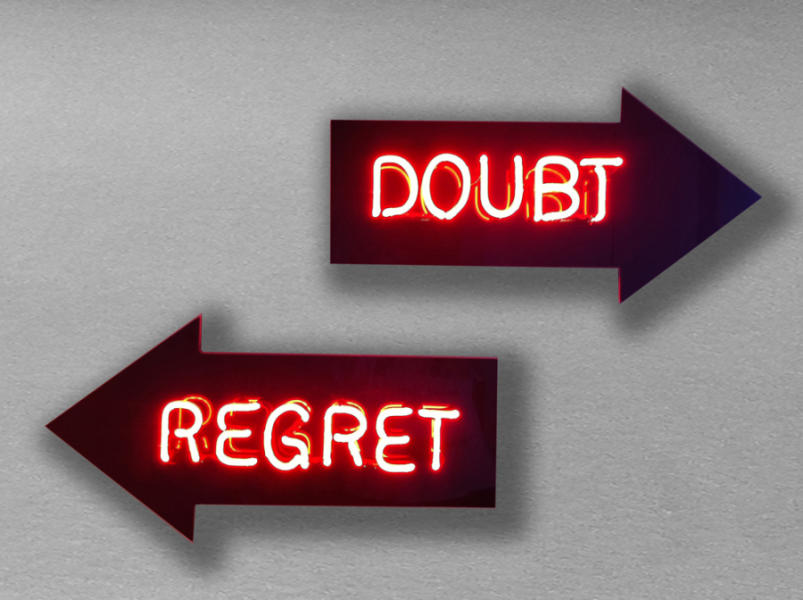- be thankful for your freedom
- no one is better than anyone else
- work hard at school and later in your job
- help others in need when you can
- violence is never a first option
- treat everyone with respect
- learn from history
I don't think most people would disagree with these rules. However, I do not believe that the items on this list are embraced in the way they should be in a modern, educated world, let alone in the workplace.
Regrets
Regret can be a powerful emotion. Usually it refers to the feeling that we should have acted in a certain way, but we chose not to do so. It doesn't mean we accidentally didn't act, it means we chose not to act and we feel badly about it later.
Let's refer to the list again and ask ourselves a few questions:
- Are we thankful for the many freedoms we enjoy, including the freedom to write about our differences without fear of reprisal or censorship?
- Have we judged ourselves to be better than someone else? Perhaps they are not the same color, or have a different sexual orientation, or practice a different religion? Do they still receive the same respect our white christian friends receive?
Regret is a powerful tool to help us improve as people. It also allows for a bright light to shine on the bigots and make their true feelings known as we examine our own choices, and the choices of those around us. You see, the narrow-minded and judgemental folks who claim to know "what's right" are usually the ones fanning the flames of exclusion, and inadvertently, hate.
That is wrong.
Doubts
Doubt refers to a sense of uncertainty, and is associated with a delay in taking action due to concerns about whether or not something is the right thing to do at a particular moment in time. While regret teaches us about making the appropriate choices in life, doubt can be an enemy that blocks our courage to follow the rules from the list above.
While we all have regrets about not speaking up at various times in our lives to support the rights and freedoms of all people; there should never be any doubt about what must be done. It is incumbent on us as leaders both inside and outside our organizations to stand up for the freedoms of all people.
How About You
Do the people in your life know what you stand for? Do the employees in your organization know that you respect everyone in society? Simply put, it is impossible to be a bigot in your personal life and then talk about how every employee should be treated fairly at work. You're lying to your team, and to your self...and that is wrong.
I'd love to hear from you.
No Excuses.
photo credit


No comments:
Post a Comment